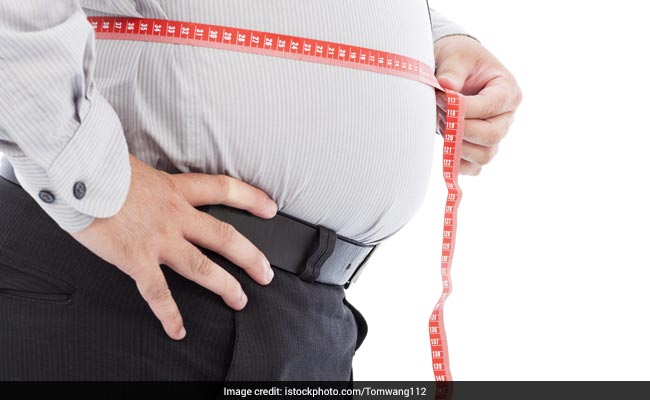What does fat vs bloating mean for your body?
What does fat vs bloating mean for your body?
Blog Article
Comprehending the Distinction In Between Bloating and Fat: an Essential Guide for Digestive Wellness
Understanding the difference in between bloating and excess body fat is vital for any individual concerned with gastrointestinal health. While bloating presents as a short-lived and usually uneasy condition, generally connected to nutritional practices or digestive disruptions, body fat represents an extra long-term change in one's figure.
Defining Bloating and Fat
Bloating and fat are two distinctive physical phenomena that can substantially influence an individual's comfort and body picture. Bloating is generally a short-term incident and can change throughout the day, often fixing with way of living changes or medical interventions.
On the other hand, body fat is a much more irreversible and secure component of human physiology, mainly functioning as a power book and playing essential duties in hormone regulation and insulation. Body fat is categorized into two types: subcutaneous fat, which lies just underneath the skin, and visceral fat, which surrounds interior organs. While excess body fat can cause health and wellness issues, it is crucial for total physical features.

Sources Of Bloating

Additionally, food intolerances, such as lactose or gluten intolerance, can lead to bloating when the body battles to process specific materials - bloating and fat. Consuming also rapidly or eating carbonated drinks can also worsen the concern, as these habits introduce excess air into the digestive system tract
Lifestyle aspects, consisting of stress and lack of physical task, can further contribute to bloating by impacting digestive tract mobility. Particular clinical conditions, such as irritable bowel disorder (IBS) or gastrointestinal obstruction, may also result in chronic bloating. Comprehending these causes is necessary for properly taking care of and reducing bloating, allowing individuals to make informed dietary and lifestyle selections that sustain their digestive health.
Symptoms of Bloating vs. Fat
Distinguishing in between the signs and symptoms of bloating and excess fat is vital for comprehending one's body and dealing with pain successfully. Bloating usually presents as a sensation of fullness or stress in the abdomen, frequently come with by visible distension. People might experience discomfort, cramping, and even this post pain, particularly after dishes. Bloating can also cause excessive gas, bring about burping or unwanted gas.
While it might add to a feeling of thickness, it generally does not produce the acute discomfort associated with bloating. Instead, excess fat has a tendency to collect slowly, leading to an adjustment in body form and dimension over time.

Acknowledging these differences is important. While bloating is usually short-term and linked to dietary elements or gastrointestinal issues, excess fat indicates an extra persistent problem needing lifestyle changes. Recognizing these signs equips people to look for ideal remedies tailored to their particular concerns regarding digestive system health and wellness and body composition.
Managing Bloating
Effective management of bloating calls for a diverse approach that resolves both dietary choices and way of living routines. It is important to recognize and eliminate details foods that may cause bloating, such as those high in fiber, gluten, lactose, or certain fermentable carbs (FODMAPs) Keeping a food diary can aid pinpoint these triggers and overview adjustments.
Integrating smaller sized, much more constant meals instead of huge ones can also lessen bloating, as it eases the digestion procedure (difference between bloating and fat). Staying well-hydrated is critical, as sufficient fluid consumption help digestion and assists stop irregularity, which can add to bloating
In addition, taking part in regular physical activity advertises stomach mobility and reduces bloating. Easy exercises, such as strolling or yoga exercise, can properly alleviate discomfort. Mindful eating methods, such as consuming gradually and eating food extensively, might better enhance food digestion and limitation air ingesting.
When to Look For Aid
Identifying when to look for clinical aid for bloating is crucial, as persistent or severe symptoms may indicate a hidden wellness concern. link If bloating is come with by added worrying signs such as considerable abdominal pain, unexplained weight reduction, anal bleeding, or constant queasiness and vomiting, it is imperative to consult a healthcare specialist. These indicators may suggest problems such as cranky bowel syndrome, stomach blockage, and even more significant problems like cancer.
Furthermore, if bloating lingers in spite of dietary adjustments or over the counter remedies, it necessitates additional investigation. People with a history of gastrointestinal conditions ought to be specifically attentive, as their risk for difficulties may be greater. Furthermore, if bloating occurs complying with the consumption of certain foods, it may suggest food intolerances or allergies that require nutritional modifications or screening.
Conclusion
In summary, differentiating between bloating and excess body fat is vital for digestive system wellness and total health. Bloating, a short-lived problem often connected to nutritional variables and digestive system hop over to these guys concerns, contrasts greatly with the steady build-up of body fat.
Report this page